- Home
- Kirsty Murray
A Prayer for Blue Delaney Page 3
A Prayer for Blue Delaney Read online
Page 3
After they had been there several weeks, Colm discovered that they were allowed to write letters home at weekends, if there was a home to write to. Some of the boys wrote to the Sisters who had run the orphanages that they had come from. But Colm couldn’t imagine wanting to write anything to Sister Clothilde. He hoped he’d never see her again. There was only one person in England that Colm wanted to write to. He joined the other boys at the long tables and took the pencil and paper that were offered to him.
‘You haven’t been in to write a letter home before, McCabe,’ said Brother Brophy. ‘Have you suddenly thought of someone?’
‘I’m going to write to my mother.’
‘But the records say your mother is dead.’
‘That’s a mistake. She’s not dead.’
‘And where do you expect this letter to be delivered?’
Colm looked up. ‘People put messages in bottles, don’t they? They put messages in bottles and fling them into the ocean and then people on the other side of the world find them. Maybe someone in the post office will know my mum. Maybe they’ll see it and they’ll find her for me.’
Brother Brophy opened his mouth to say something but Colm quickly began writing, his head down, the pencil scurrying across the page.
Dear Mum,
I miss you very much. I am at a place called Clontarf in Australia. You can get to Australia on a boat. Please come and find me. I will be a good son. I will be the best son a mother could want.
Love from your boy, Colm McCabe
Colm folded the letter up and placed it in the envelope he’d been provided with. On the front he wrote ‘Mrs McCabe, Liverpool, England’. He held the envelope up and stared at it. It didn’t look like much of an address but he wasn’t sure what else he could write.
That night, as he lay in his narrow bunk, he took out the prayer card of Mary that he kept hidden beneath his mattress. He could just make out the ring of stars around her halo in the moonlight that shone through the dormitory windows. Mary Help of Christians was the Mother of Mercy and the Queen of Heaven. If he asked her, as a mother and a queen, she’d be sure to make Colm’s letter reach its destination. He pressed the card against his heart and said a short prayer. He could feel the strength of his longing pour into the entreaty. Now all he had to do was wait.
There were sixty boys in Colm and Dib’s classroom, all sitting in rows at battered desks. The heat in the room was intense, and when they opened the windows the summer air poured in and made it hotter still. While the Australian boys worked on arithmetic, the migrant boys were given another test. Colm saw Dibs crumple at the sight of the sheet of questions. Some of the other boys had already been taken out of the classroom and sent to work on the farmland that surrounded the orphanage. If Dibs failed this test, he was sure to be set to work in the fields or orchards and he’d never learn to read and write properly.
Colm finished the paper quickly but he could see that Dibs was struggling, his lips silently mouthing the words, his panic growing more intense as other boys began handing in finished papers. Dibs started to writhe in his seat. He put his hand up but the teacher didn’t notice. He tugged at the cardboard sign that hung around his neck and waved his hand urgently. The sign read ‘I am a fish’ and Dibs had been forced to wear it everywhere for the past week.
Dibs had to sleep in the bed-wetters’ dormitory, a dark, gloomy room at the back of the main building. The floor was bare concrete, the paint was peeling. The mattresses were rotten, with old brown wadding bursting out of splits in the fabric. Colm couldn’t bear the smell of the place. In the early mornings, Colm had seen Dibs and the other bed-wetters, wrapped in their sodden sheets, trudging off to the showers to scrub them.
All through the day, Dibs kept his head hung low, avoiding the company of the other boys. Colm didn’t know how to help him. When the bell rang at the end of school, the boys poured out of the classrooms and headed straight to the river to swim. It was one of the few things in the day to look forward to. At the end of the jetty, they stripped off their clothes. All the Australian boys swam like fishes. They dived in and quickly reached the deep water in the middle of the wide Canning River. The new boys bathed in a shallow area near the banks. Colm had been practising holding his breath underwater and getting the feel of the silky river water. Today he was ready for more.
Dibs watched from the bank, twisting the corner of his shorts in a tight knot of anxiety as Colm waded out. Colm felt the flicker of guilt that Dibs always brought out in him these days, but he pushed it away.
The deep water was beckoning and Colm wanted to swim out to where he could float alone, staring up at the perfect sky. When the water covered his ears, the rest of the world disappeared. He turned onto his back and stretched his limbs, imagining he was a small, floating insect on the surface of the wide river. With his eyes shut, he could pretend his skin was a shimmering shell. Then, below the muffled splashes of other boys, he became aware of another sound. Someone was calling out. Rolling over, he was startled to see Dibs not far away, thrashing wildly. How on earth had he got there when he couldn’t swim a stroke?
The distance between himself and Dibs seemed to take forever to cross. By the time he reached the deep water, Dibs had gone under. Colm took a breath and dived down into the cold darkness, groping blindly until he felt the thin prickle of Dibs’s scalp. Reaching deeper, he scooped one hand under the other boy’s arm, pulling him up. Sputtering and gasping, Dibs immediately tried to climb on top of Colm. He kicked hard to get away, shouting, ‘Dibs, don’t fight me! You’ll drown us both!’
Taking another breath, he swam back but Dibs panicked again, clawing at Colm. Colm punched him then tried to lock an arm around Dibs’s neck.
Finally, two older boys realised that Colm needed help. They swam in close and helped push Dibs to shallow water and then dragged him up onto the bank. As soon as he touched the dry earth he knelt on his hands and knees, vomiting up water, and then what was left of his breakfast, and finally a flood of green bile. Slowly, he sat up. Tears streamed from his eyes.
‘He tried to drown me,’ he sobbed.
‘I did not!’ said Colm. ‘I tried to save you!’
‘Not you,’ Dibs whimpered. ‘Brother Brophy.’
The two older boys looked at each other and raised their eyebrows sceptically.
‘He was trying to teach you to swim, you Pommy whinger.’
‘To drown me,’ whispered Dibs. He looked small and wizened, his arms wrapped around his knees, his lip covered in watery snot, his eyes red-rimmed.
Colm sat down beside him in a gesture of solidarity against the big Australian boys.
‘Don’t thank us for saving you, then,’ said the older boy.
Colm and Dibs said nothing, waiting for the other boys to leave.
‘Pommy bastards,’ they said, walking away.
Dibs kept on crying hard. Awkwardly, Colm rested one hand on Dibs’s shoulder and the sobs subsided.
‘He said he was going to take me over the other side,’ said Dibs. ‘He said, “Put your arms around my neck.” And he swam out into the middle of the river and then, when we was in the deep water, he broke my grip. He dropped me in the deep water and swam away. If you hadn’t come, I’d have drowned.’
Dibs began to wail again, his mouth open, as grief spilled out of him and his skinny body convulsed with misery. Colm looked out across the shimmering Canning River and imagined floating away under the clear summer sky.
5
The first cut
As the wait for a family to adopt him stretched into months, Dibs seemed to be shrinking inside himself. It was different for Colm. He had grown taller and stronger since arriving in Australia, as if the sunshine fed his body and soul. And he was glad no one wanted to adopt him. Every week he wrote another letter to his mother. Over and over again he imagined that moment when she would open his letter and realise that her future was in Australia. Some mornings he would look down the driveway and almost see her walkin
g along it, her blue coat slung over her arm, her red hair a flame against the yellow grass. Even when the vision faded, he was sure she would come for him.
There was sunshine everywhere, so bright that it made his eyes ache. And there was music too. Sometimes Colm thought he could hear it in the fields - a low humming that seeped up through the earth. It was louder near the river, but it was everywhere he went. When they sang at mass, the sound of their singing seemed to vault into the high chapel and flow out into the blue Australian skies. There were bigger boys whose voices swelled rich and deep beneath the sweet high sopranos of the younger ones. If Colm shut his eyes, he could believe this was exactly what heaven would sound like. There would be nothing but blue skies and soaring voices merging together.
Colm longed to be allowed to join the band. The boys played all types of brass instruments and drums. They wore uniforms, too, with bright shining buttons and white caps. Sometimes he dreamt he was one of them. He imagined his mother coming to Clontarf to take him away and finding her boy dressed in a uniform, playing a brass trumpet. She would clap her hands and glow with pride at the sight of the boy she had travelled to Australia to be with.
Sometimes, Colm had to imagine his mother’s arrival over and over again, especially at the end of the day. Every evening, after dinner, was punishment time. Colm wondered if the Brothers chose that time so the boys would forget their hunger. They were always hungry. There was never much food on the table at breakfast, lunch or dinner. When a boy was called up to be punished, Colm would fold his hands and concentrate extra hard, trying to think of anything other than what was going on around him.
The boys were seldom sure why they were being punished. They only knew it was ‘for their own good’. One night, both Colm and Dibs were called up. Everyone was assembled in the big dining hall to watch.
Brother Brophy stood at the front of the hall, strap in hand. When Dibs and Colm shuffled up to the front of the hall, he turned them to face the assembly.
‘These boys are liars. You are not to pay heed to any of the evil stories they have spread.’
Dibs stood miserably, clutching the hem of his shorts. Colm started humming to himself under his breath.
‘McGinty, you are an ungrateful, lying cur. And McCabe, you must know it is a sin to bear false witness. Why did you support McGinty in his lies?’
‘I don’t know, sir,’ said Colm, not meeting the man’s angry gaze. If he could just keep the tune in his mind, he wouldn’t notice the pain to come.
‘It is our duty to teach you right from wrong. We extend to you our charity, and you lie and abuse our generosity with your vile untruths.’
Colm felt the hum of his song warm in the back of his throat.
‘Take off your shorts and bend over the chair, McCabe.’
Colm bit his lip and heard the swish of the strap. His eyes stung as the leather cut his bare skin. When the sixth blow had fallen, Colm drew his shorts back on clumsily. He went back to his place and stared at the dark wood of the tabletop as Dibs stepped up to take his punishment. Dibs was crying even before he had taken his shorts off.
‘I didn’t tell any lies, sir. Please. It was Colm what said you tried to drown me. I know you was trying to teach me to swim. It was Colm. It was Colm who made the lie.’
Brother Brophy only looked angrier and Dibs cried harder. Suddenly, Colm couldn’t bear it. He stood and put his hand up.
‘It isn’t Dibs’s fault, sir. He’s right. It’s my fault. I started the lie.’
‘And why didn’t you speak up sooner?’ roared Brother Brophy. ‘Do you think it’s fair to allow McGinty to take punishment for your sins?’
Colm remained silent.
‘Speak up!’
‘I don’t know,’ said Colm.
Dibs stood silently all the while, clutching his shorts, looking from Colm to Brother Brophy.
‘Get up here now, McCabe.’
Dibs met Colm’s eyes for a moment. His face was bright red with shame. Colm wished he could make it clear he didn’t mind. It was easier to take another beating than to watch Brother Brophy beat Dibs.
Dutifully, Colm bent over again and waited for the strap to fall.
Colm was slow to wake from the nightmare. The first thing he was aware of was the searing pain in his hand and someone crying out for help. Then he was sitting in Matron’s office while she picked pieces of glass from his palm with a pair of tweezers.
‘What on earth were you thinking, child?’ she said as she dropped another sliver of glass into the metal dish beside her.
Colm didn’t answer. He’d learnt that whatever he said it was nearly always the wrong answer.
‘What were you doing? What were you thinking, pushing your hand through the glass like that?’
Colm shrugged and then winced at the pain.
‘I don’t remember.’
He looked away. It made him feel faint, watching the nurse at work on the bloody gashes in his hand. He did remember the dream, but it wasn’t something he would tell her about. It was the same dream that he’d had since he was six - the dream that always sent him sleepwalking. He was a tiny boy again, playing peek-a-boo with his mother. Then she was gone and the dreamworld turned dark as he ran searching for her. The sky grew black and forbidding and something evil pursued him through the blackness as a storm unfurled around him. It always happened when it rained.
When Colm thought about being little, about the time before St Bart’s, it was like remembering a dream, a life that belonged to someone else. He remembered the old woman down the street who used to sit outside her front door on sunny days. He had thought she was a witch and always ran as fast as he could when he had to pass her. He remembered the day her house wasn’t there any more, and wondering what had happened to her. He remembered the sirens and his mother scooping him up and carrying him in her arms as she ran to the bomb shelter. He knew he should have been frightened, but mostly he only remembered how exciting it had been.
It was raining now. The sound of the rain on the roof was a rhythmic thrumming, the first Colm had heard since he’d arrived in Australia. He walked along the wide balcony. When he lay down in his narrow bed, he tried to hold those thoughts of his mother, but instead he could only see Dibs’s startled face - Dibs adrift in the dark waters of the Canning River, while all his hopes and dreams were swept away by the current.
6
Bindoon
Colm stood by the roadside with a small group of boys. He wasn’t sure if it was because they thought he was a liar or because he broke the dormitory window, but he was being sent to another orphanage. He’d received a thrashing for breaking the window. The buckle of Brother Brophy’s strap had left a long, deep gouge in his back that hurt for days. Wherever they were sending him now, it couldn’t be worse than Clontarf.
When Colm had told Dibs he was being sent away, Dibs had said nothing, expressing neither interest, disappointment nor shame. Colm felt a flash of anger. It was in that moment that Colm realised Dibs wasn’t the boy he used to know.
The truck drove through stark, pale gold countryside. The gold grass gave way to rough dirt and then they turned off the main highway and down small, winding roads cut into red, red soil. Colm laughed out loud when they passed through the main gates of Boys’ Town and he saw the name of the orphanage: Bindoon. Tommy had been sent to Bindoon. He was going to be with Tommy again. He knelt on his seat and pressed his face against the bus window, smiling at every tree, stone and blade of grass.
Along the roadside stood small mounds of rock with pictures carved on them. It wasn’t until they’d driven past several that Colm realised they depicted the Stations of the Cross. Catching a glimpse of Mary and Jesus on the fourth Station, he touched the prayer card in his pocket. He’d only just had time to rescue it from beneath his mattress before they left. The gilt was wearing off the edges but Mary’s face still looked serene and Baby Jesus had lost none of his freshness, even if he was a little crumpled. As long as he had the pr
ayer card, Colm knew his hopes and dreams might still come true.
At the bottom of the hill were the main buildings, like a mass of Spanish-looking castles with towers and arched porticos. As they drew closer, Colm could see that the buildings were still incomplete. There was scaffolding and piles of building materials clumped around the unfinished works. The ground was damp from recent rain. Red mud splashed up from the puddles as Colm jumped out of the truck. A group of small, bedraggled, barefooted boys watched the new arrivals with no interest. Then three figures came trudging along a road from the green hills, swinging braces of rabbits tied together with twine. Colm recognised Tommy, even before he could see his face, from the way he moved and the blaze of his white-blond hair. It was cropped close to his scalp and even more bleached by the sun than when Colm had seen him scrambling onto the truck at the docks in Fremantle.
Colm ran up the track to meet him.
‘Tommy, Tommy,’ he called, breathless with excitement.
Tommy stopped and groaned. ‘Tonto! What are you doing here?’
‘Aren’t you glad to see me?’
‘No. You don’t want to be here, mate. This place, this is hell.’
Colm looked to the green-and-gold countryside, and the dam lying dappled in the sunlight, and stared back at Tommy uncomprehendingly.
‘Nothing’s the way it looks from the outside,’ said Tommy darkly. He held up his brace of rabbits and pointed at the skinned carcasses.
‘Don’t tell no one,’ he whispered in a low voice, ‘but two of these is cats. I couldn’t catch me quota, but I fixed it. They look just like rabbits - took off their ribs and tails. You can’t tell, can you?’
Colm stared at the mangled bodies and shook his head. Tommy said nothing more until they reached the boys’ home. Two Brothers in black were herding the new boys ahead of them, driving them up the steps of the building with cuffs and blows. Colm slipped his hand into his pocket and touched Mary Help of Christians.

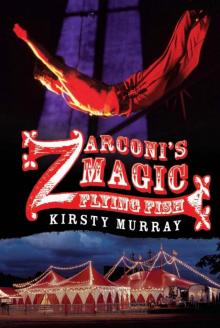 Zarconi’s Magic Flying Fish
Zarconi’s Magic Flying Fish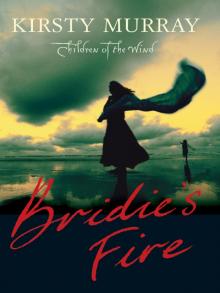 Bridie's Fire
Bridie's Fire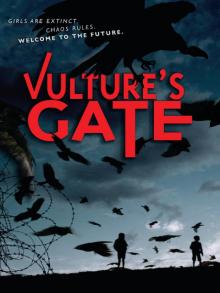 Vulture's Gate
Vulture's Gate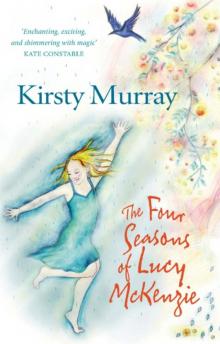 The Four Seasons of Lucy McKenzie
The Four Seasons of Lucy McKenzie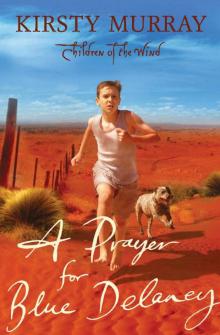 A Prayer for Blue Delaney
A Prayer for Blue Delaney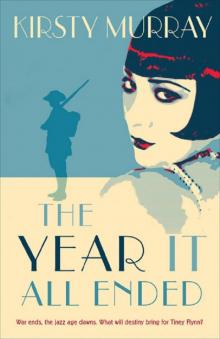 The Year It All Ended
The Year It All Ended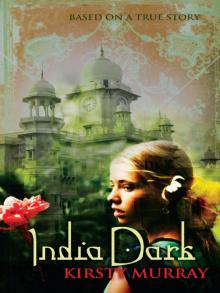 India Dark
India Dark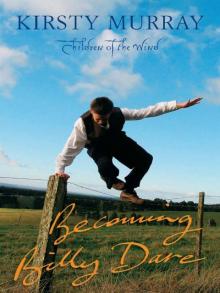 Becoming Billy Dare
Becoming Billy Dare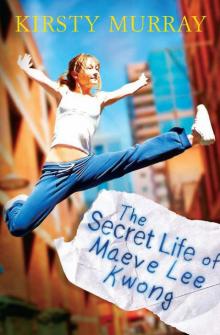 The Secret Life of Maeve Lee Kwong
The Secret Life of Maeve Lee Kwong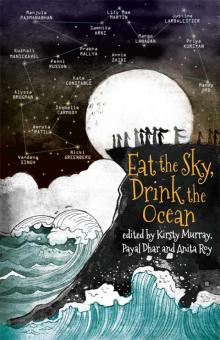 Eat the Sky, Drink the Ocean
Eat the Sky, Drink the Ocean